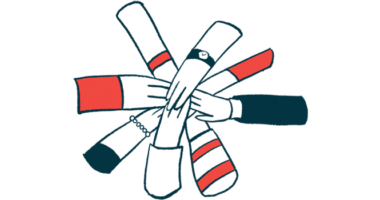Neuren Closer to Phase 2 Testing of NNZ-2591 After FDA Guidance

Neuren Pharmaceuticals is a step closer to Phase 2 clinical testing of NNZ-2591, its investigational therapy for Angelman syndrome, Phelan–McDermid syndrome, and Pitt Hopkins syndrome, after the company received clear and constructive guidance from the U.S. Food and Drug Administration.
All three syndromes are early childhood, genetic neurodevelopmental disorders for which there are currently no approved treatments.
The positive feedback from the FDA’s Office of Neuroscience means Neuren can proceed with investigational new drug (IND) applications for clearance to start Phase 2 trials.
If the FDA clears the IND, Neuren expects to begin the trials in the second half of 2021, and to obtain top-line results in the second half of 2022. The Angelman syndrome trial is expected to be conducted in Australia, with the trials for the other syndromes in the U.S.
“Our positive dialogue with FDA was very helpful and with only minor modifications confirmed our plans for three disorders that have such urgent unmet need,” Jon Pilcher, CEO of Neuren, said in a press release.
NNZ-2591 is an analog of cyclic glycine proline, a peptide (small protein) that exists naturally in the brain and is important for the development of neurons (nerve cells).
The investigational therapy is designed to restore the normal communication between brain cells for conditions in which they are impaired, such as Angelman syndrome.
In a mouse model of Angelman syndrome, NNZ-2591 improved cognition and motor function, reduced anxiety, and eliminated seizures. It has also shown positive effects in animal models of Phelan–McDermid syndrome and Pitt Hopkins syndrome.
A Phase 1 trial (NCT04379869) is currently testing the safety, tolerability, and pharmacokinetics (the movement into, through, and out of the body) of NNZ-2591 in 30 healthy volunteers.
“NNZ‐2591 has ideal attributes — a unique mechanism of action, consistent and compelling results in the model of each disorder, a clearly identified optimum dose and proprietary manufacturing with high purity and yield,” Pilcher said. “The final piece of the jigsaw is to demonstrate its impact in patients, so we are eager to expedite that data from these three Phase 2 trials.”
Each Phase 2 trial is expected to enroll 10 to 20 pediatric patients and last 13 weeks. The primary goal will be to confirm the therapy’s safety and tolerability.
The secondary goal will be to assess the efficacy of NNZ-2591 by observing the extent of change in each child from initial measurements.
The information obtained will be used to design future clinical trials with optimum primary efficacy endpoints.
The FDA has granted orphan drug designation to NNZ-2591 for the treatment of each of the three syndromes, and so has the European Medicines Agency.






